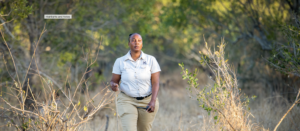Ecotourism is an aspect of the travel industry that revolves around the utilisation of natural environments for tourism. If managed correctly it has the ability to protect ecosystems while at the same time positively benefitting people. Established in 1926, Londolozi pioneered ecotourism in South Africa. Transformed from a cattle ranch into a thriving game reserve, Londolozi formed the blueprint for photographic safaris in the region. An ecotourism offering rooted in sustainability, that developed into a social enterprise with a deep intention to inspire new systems of living in harmony with nature.
Ecotourism in South Africa: tales of a Londolozi Ranger
For as long as I can remember I have learned about ecotourism. I was fortunate enough to witness the wonders of the African wilderness at a very early age. Growing up in Johannesburg I can clearly remember the excitement of waking up before sunrise. Hopping in the car and setting off on a road trip, getting out of the city and into the bushveld.
Although to be fair, I didn’t really have to wake up completely. My brother and I would climb into the backseat with a pillow and fall asleep within minutes of our journey. However, waking up to the smell of fresh air and the scenes of wide-open spaces was invigorating. It was these early experiences as a young “ecotourist” in a sense, that instilled in me a fondness for wildlife. It was to develop into a fascination of the natural world, and ultimately lead to me becoming a Londolozi guide.
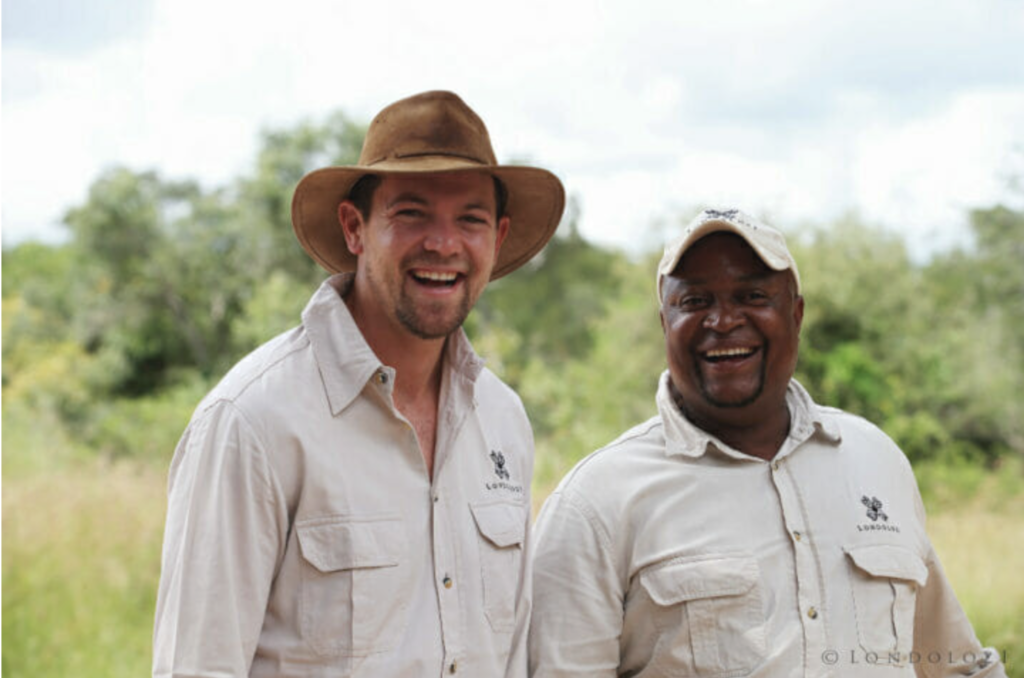
Finding my Feet
Prior to living at Londolozi I had only ever experienced ecotourism as a traveller. I had given it little thought beyond the cost of park fees and accommodation. I remember within my first few weeks of working at the lodge I read Dave Varty’s book, The Full Circle. Reading through Dave’s account of the Londolozi story was truly inspiring. It was my introduction to the history and development of a responsible ecotourism model. During my time as a camp manager and guide living in the Londolozi Village. I gained a true understanding of how a social enterprise within ecotourism in South Africa has the power to create a positive ripple effect. That is environmentally, socially and economically.
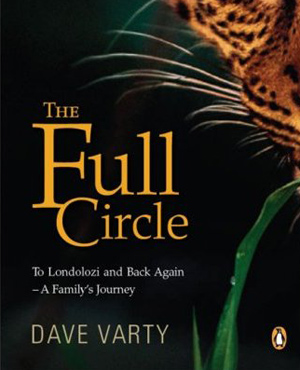
Generations of Ecotourism at Londolozi
The Londolozi story is a long tale. The model is deep, not wide. And while one blog post will barely scratch the surface of the inner workings of Londolozi. I figured that during this period in which South Africa’s ecotourism industry is beginning to rebuild, it would be fitting to look back at where we started. Reflect on how a for-profit conservation model transitioned into a social enterprise. And the way in which our futurist African village has become a working model of sustainable travel. This story goes back 100 years, so make yourself a cup of tea, or better yet, a tumbler of G&T. For this was the beverage of choice when the tale began…
The Pioneers Prior to Ecotourism in South Africa
Londolozi’s restoration story started way back in 1926. After a few Gin & Tonics, a couple of adventurous souls decided it would be a fantastic idea to purchase a bankrupt cattle farm in South Africa’s wild region known as the Lowveld. The term “ecotourism” hadn’t even been coined when Charles Boyd Varty and Frank Unger hopped off a train with a compass. They ventured into the bushveld, and set up camp under a Jackleberry tree on the banks of the Sand River. However, their pioneering spirit for adventure and deep admiration for wilderness present in the generations that followed. Their wild adventures and love of the land provided the foundations from which Londolozi deep roots stemmed.

For the next 50 years, their families would travel out to the farm each winter. The cooler months of the year were the most hospitable during those early times. Nowadays Londolozi’s air-conditioned luxury suites with their private plunge pools make summer absolutely glorious to experience. Not to mention the ice-cold beverages within arms reach. Although, things were slightly different when you arrived via an ox driven wagon.
Pioneers Building a Home
The mode of transport was not the Defender’s of today but something that quite literally had to be defended. Defended from marauding lions that is. Food that needed refrigerating remained in a wooden and chicken wire mesh cupboard. A wet cloth draped over it kept its contents cool. Select foods rationed carefully bolstered the food that the land provided. The days started with sounds of lions roaring at first light and ended with stories shared around a crackling campfire. It’s a beautiful thing that this part of Londolozi life has remained unchanged for nearly a century.
While the Vartys and Ungers (now Taylors) would travel to their farm for family safaris each year. There was a parallel story of early ecotourism in South Africa unfolding all those years ago, the Kruger National Park. For centuries the story of humans and our relation to nature has been one of hostility and extraction. The encroachment of modern agriculture combined with hunting on a mass scale for prize and profit was beginning to take its toll in South Africa’s wildest northeast corner. Charles Boyd Varty, Frank Unger and the generation that followed them were part of a pioneering group of early conservationists. Unfit land practices caused the rapid destruction of wild spaces, interventions needed to swiftly preserve them for future generations.
Establishing the First National Park
In 1898, the Sabi Game Reserve was proclaimed in the region of the Lowveld between the Sabi and Crocodile Rivers. In 1902, James Stevenson-Hamilton, a Scotsman and former lieutenant in the British army became the first permanent Game Warden. He based himself on the Sabi River where Skukuza rest camp is today. And it was under his watch that the reserve would be expanded. In 1926 the Kruger National Park was established.
This was a crucial turning point in the natural history of South Africa. It was the country’s first national park. Conservation was the primary goal of this initiative, however, the formation of the park also provided an opportunity. Forward-thinking naturalists started experimenting with the concept of ecotourism in South Africa. In the early 1900s, Africa’s wild creatures were perceived as a food source or dangerous vermin to be eradicated. I’m sure there were some sceptics when it was suggested that the Kruger could be a tourist destination. A place where people would pay just to observe wild animals in the natural environment. As it turns out people we willing to do just that.
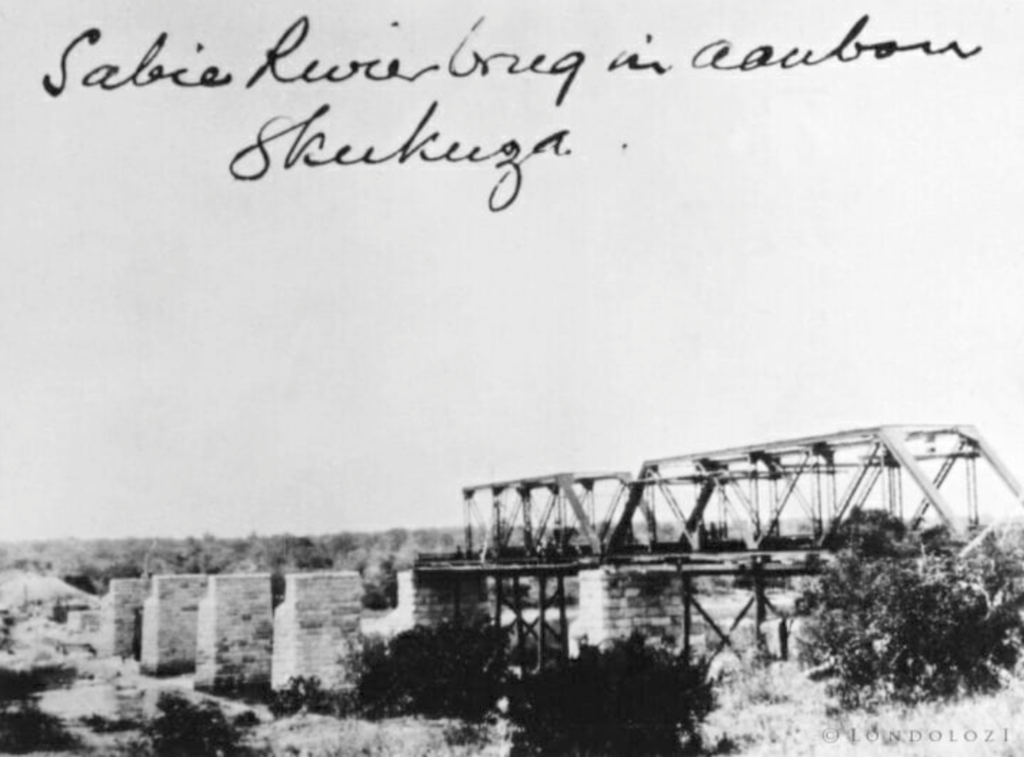
The Introduction of Ecotourism
Johannesburg’s economy grew off the back of the gold rush, and a railway line towards the Indian ocean was constructed in order to export the region’s resources. It was this railway that would provide South Africa’s first ecotourism experience. Stevenson-Hamilton convinced the commissioner of the South African Railway Service that a round trip from the border of Mozambique through the park would be an incredible experience. By day passengers viewed games through their carriage windows. At night, around a bushveld campfire on the Sabi River, the warden told wild tales.
Founding The Conservation Development Model: The Formation of Responsible Ecotourism in South Africa
Two generations later, on their family farm just to the west of the Kruger, there was a vision forming in the minds of two teenagers. One in which people and wildlife could mutually benefit from each other. Dave and John Varty grew up being influenced by the early conservationist and great naturalists of the times. Their father, Boyd, instilled in them a great respect for the wild, and along with characters such as Harry Kirkman, one of the early Game Wardens in the region, and Winnis Mathebula, a close family friend and great tracker, passed on to the boy the crucial skills they were to need for a life of working and living in the African bushveld.
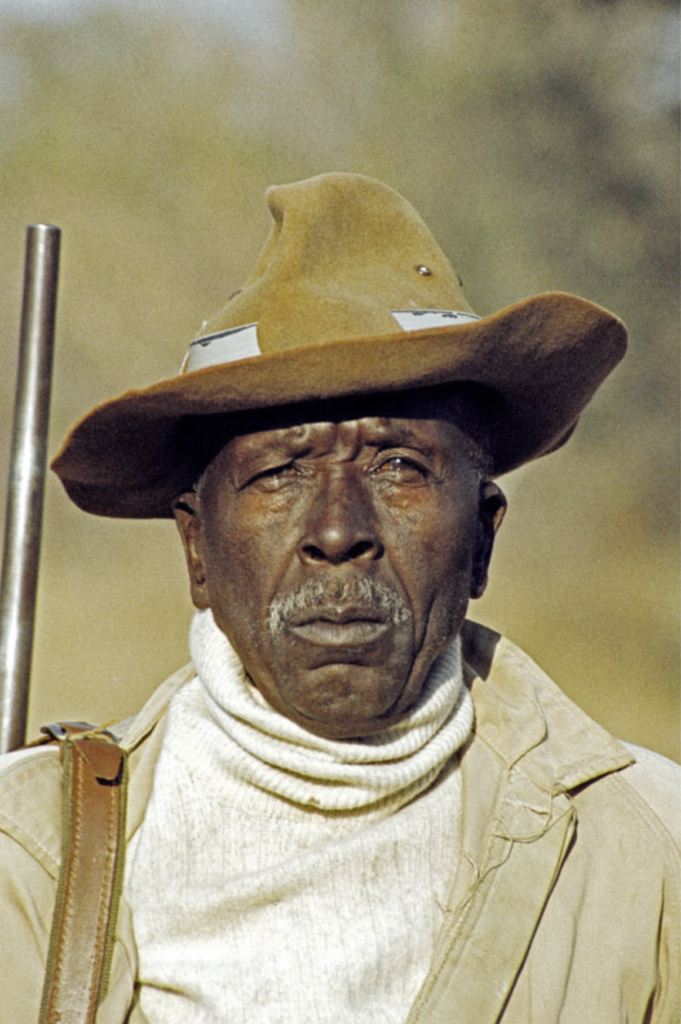
After tragically losing their father at a young age, Dave and John managed to convince their mother, against all other financial advice, not to sell the land for financial security. Their connection to the land ran too deep to see it lost to the highest bidder. In order to keep the farm, they would have to pay for it. And so with absolutely no experience in business or hospitality, they set out to start a safari operation. What could go wrong? It turned out “quite a bit” would be the answer to that question…
Establishing Londolozi
“The night before our first year business administration exams, John pulled the word ‘Londolozi’ (‘the protector of all living things’) out of a Zulu dictionary and our safari business was born. We had no doubt that this was where our future lay” Dave Varty, The Full Circle.
Armed with a few “bush skills” and a tenacious determination to create something special. The Varty brothers, along with a couple of their university friends, dived head-first in an ecotourism venture. The idea was simple: create a financially viable business in order to conserve wildlife and support people. Although executing this proved to be slightly trickier than expected. Animals raided food stores. When the Land Rover broke down guests were treated to a surprise bushwalk back to camp (please, no Land Rover jokes in the comments below, thank you).
There were continuous issues with the water. I had a good chuckle at the story of how boiling water from the old wood fire heating system would sometimes flow back up the pipes. It resulted in the rather odd scenario of having a piping hot bubbling toilet. The founders of Londolozi certainly had their work cut out for them. However, as the old saying goes ‘where there’s a will, there’s a way’. A bunch of scruffy khaki-clad students with enthusiasm for life had strong resolve offering their guests a world-class safari experience.
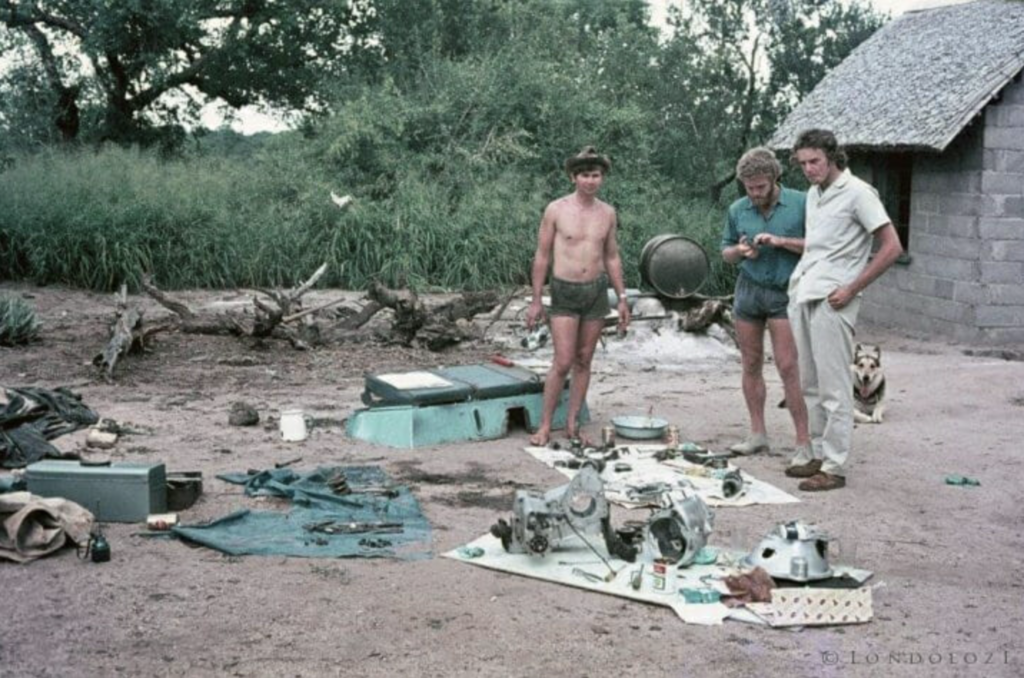
Londolozi’s Mission Statement in 1972:
“We aim to create a model in wise land management by using the many qualities of the natural system and by integrating our visitors with the environment and the local people to the benefit of all. Our primary objective is to demonstrate that man and wildlife can interact on a sustainable basis”.
Introducing a better way forward in the Sabi Sands
Londolozi was beginning to take shape. And while the day to day challenges of lodge life was met with vigour, there were much larger concerns at hand. A combination of human factors had negatively impacted the Sabi Sand Game Reserve. The ecosystem wasn’t as healthy as it once was. A veterinary fence that built along the Kruger National Park border for political reasons cut off the natural migratory routes of many large mammals. Herbivores trapped within the Sabi Sands heavily overgrazed the vegetation and compacted the soil.
Intensive farming in the catchment areas of the Sand River was using up much of the water before it even entered the reserve. Game numbers were dwindling and while the trackers were incredible at finding lions, other large predators such as leopards were rarely seen at all. These environmental issues were all unfolding alongside the growing social crises in South Africa at the time. Drastic action would be needed on a number of fronts to rebuild our relationship with nature and each other.
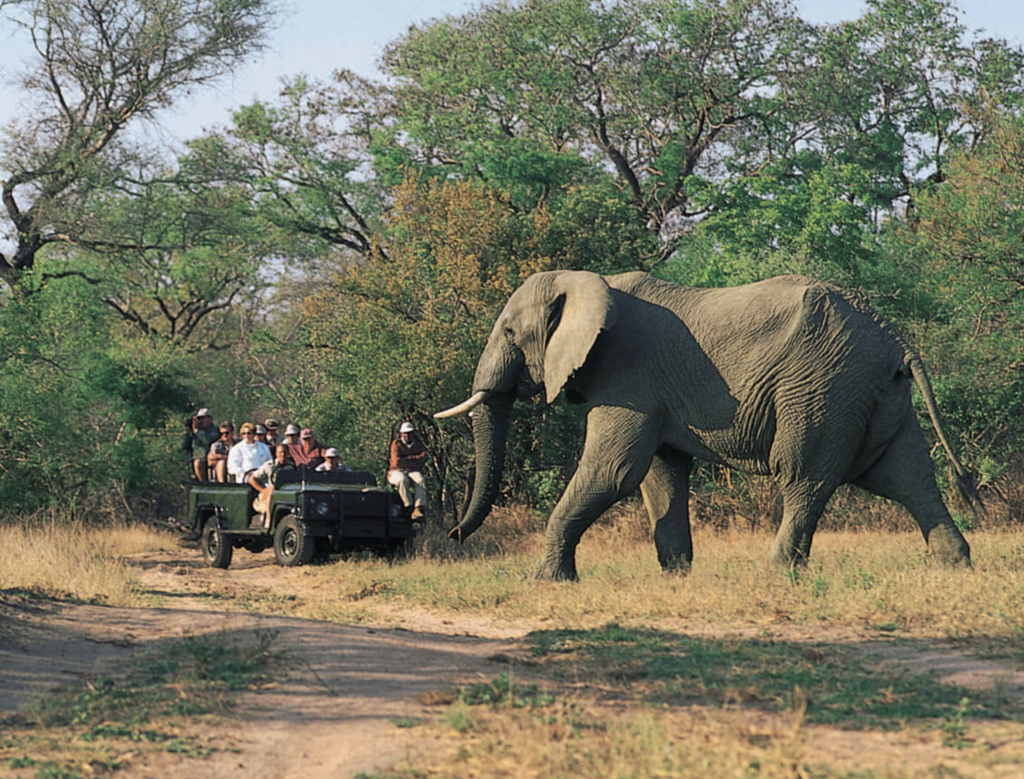
Land Restoration Under Ken Tinley
Under the guidance of maverick ecologist Ken Tinley, Londolozi embarked on the first restoration project of its kind in South Africa. Carefully thought out land management practices raised the water table and allowed nature to thrive. As prey species returned, so did the predators and thanks to the relentless efforts of the early guides and trackers The Leopards of Londolozi would soon become famous.
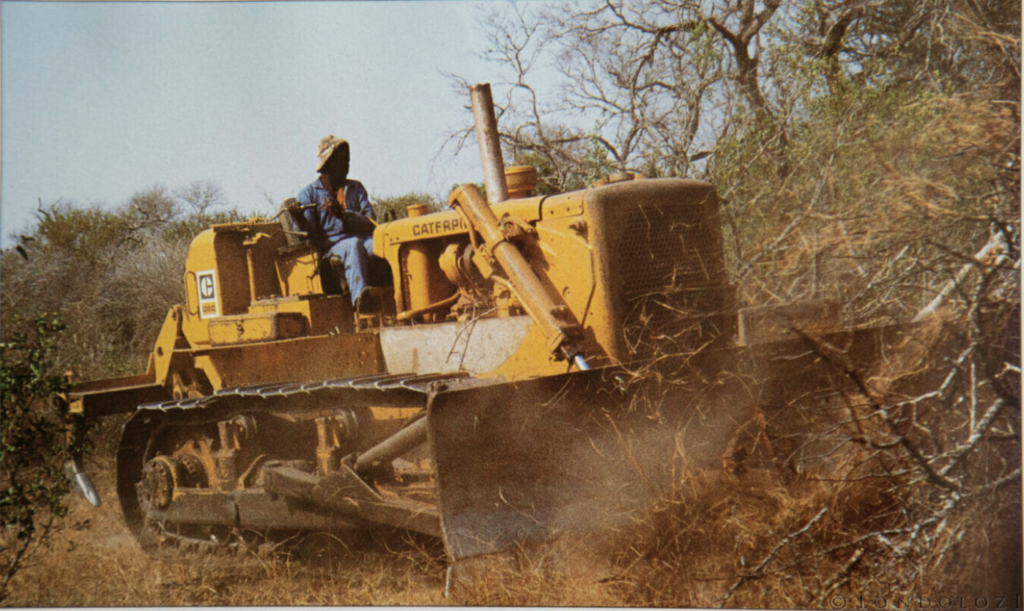
While land restoration took place, continuous improvements were being made to the camp. Warm beers and impala stew for breakfast, lunch and dinner was charming in the 70s but just wouldn’t cut it. The goal was to create a world-class experience. The team strived towards luxurious accommodation, fine cuisine and exceptional service. With Shan Varty at the helm, Londolozi’s Tree Camp became the first camp in Africa to be accredited with Relais & Chateaux status.
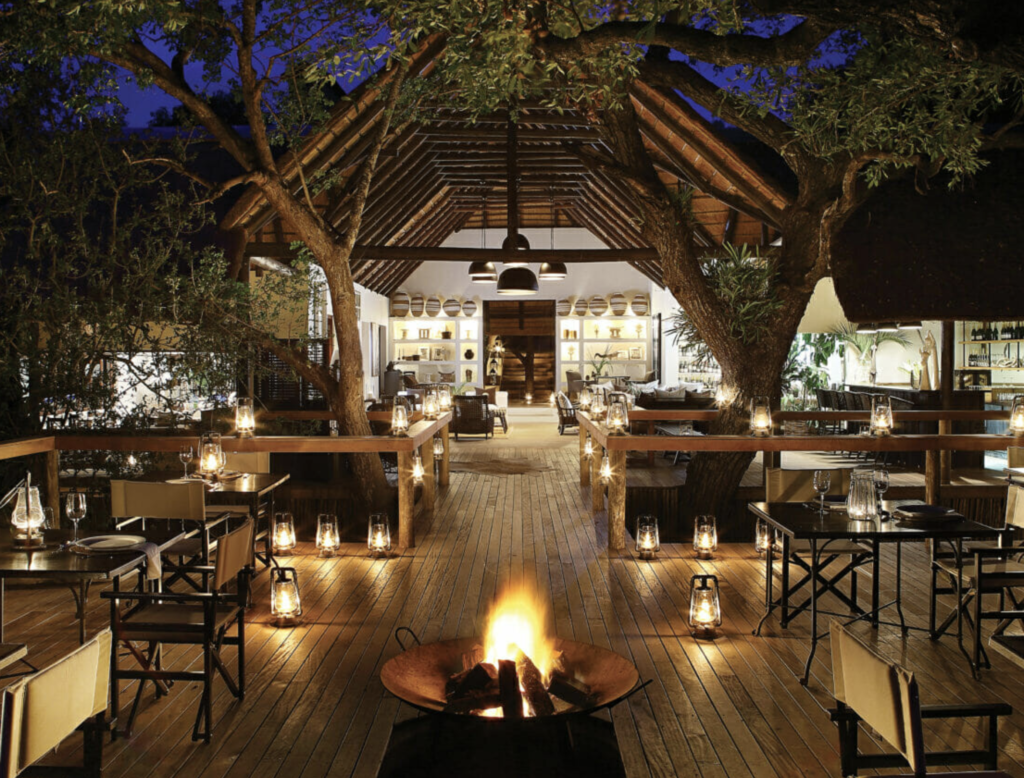
- Discover Tree Camp, our lodge nestled in the trees
Building a Brighter Tomorrow
On the bank of the Sand River, in the heart of the Sabi Sands Game Reserve. Grew an ecotourism model for South Africa’s future. Women and men, people of different races and cultures. All living and working together in a mutually beneficial relationship with nature. A defining moment in Londolozi’s history is Nelson Mandela’s visit after his release from prison.
In 1990, Enos Mabuza, an ANC member and friend of the Varty’s had arranged for Mandela to stay at the lodge. A few days of rest and much-needed break reduced the immense strain he was under. During Mandela’s time at the lodge, Dave was able to have many conversations with the extraordinary man. The man who would go on to become the first president of the Republic of South Africa. Conversations that revolved around the future of conservation and the economic opportunities that lay in utilising natural resources. But doing so in a sustainable manner through ecotourism in South Africa.
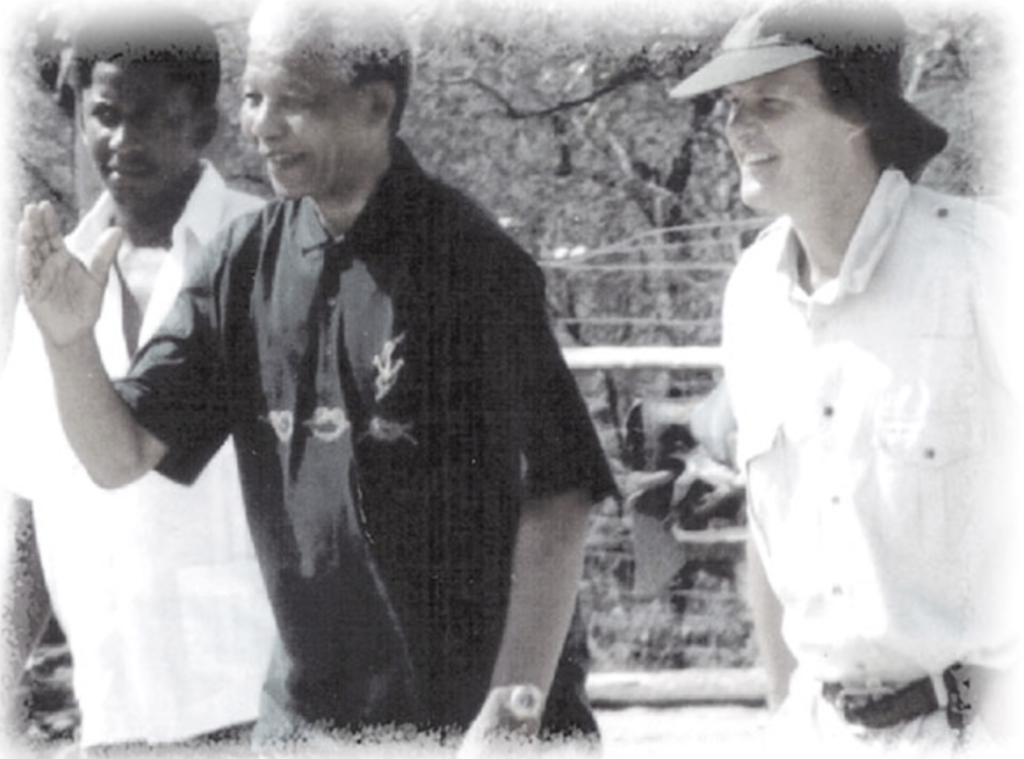
Mandela on Londolozi
‘During my long walk to freedom, I had the rare privilege to visit Londolozi. There I saw people of all races living in harmony amidst the beauty that Mother Nature offers. There I saw a living lion in the wild. Londolozi represents a model of the dream I cherish for the future of nature preservation in our country.’ Nelson Mandela, 1995.
Formation of the Greater Limpopo Transfrontier Park
Mandela’s government would go on to see tourism as a key driver in uplifting rural communities and put in place measures for the further protection and of expansion wild spaces. The Greater Limpopo Transfrontier Park in which Londolozi Game Reserve and the Kruger National Park form part of is an open ecosystem between South Africa, Zimbabwe and Mozambique and is a great success story of the cooperation between governments as well as private landowners for the benefit of the ecosystem of the Lowveld and it’s people.
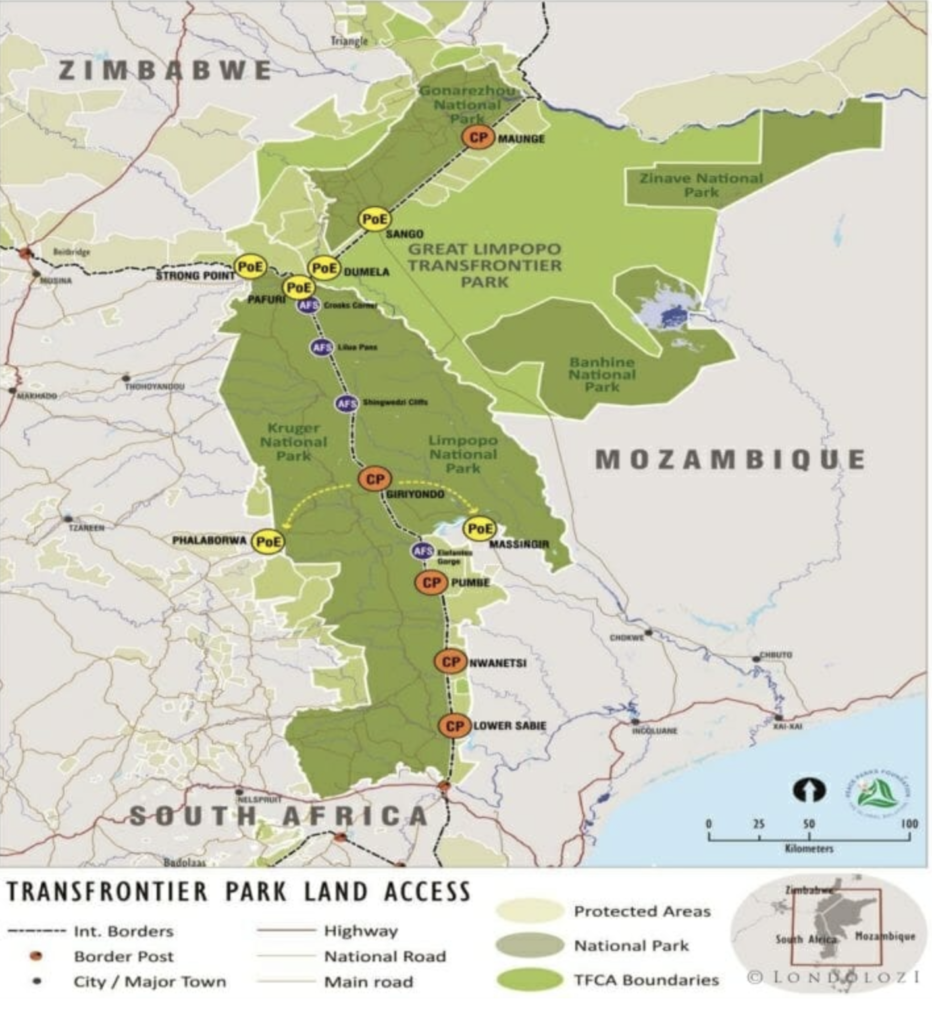
In those early years, the founders of Londolozi set out what was to be the blueprint of photographic safaris in Southern Africa. It was a for-profit conservation development model that formed the basis of ecotourism in the Sabi Sand Game Reserve and was expanded into other parts of Africa. Rooted in the principles of “care of the land, care of the wildlife, and care of the people” Dave and Shan Varty, along with a few other intrepid entrepreneurs formed the Conservation Corporation Africa or CC Africa as it was known (now &Beyond). They set about rewilding old farms, building and operating camps in some of Africa’s most spectacular regions and creating an economy around wildlife.
Tourism generated enabled the protection of wild spaces while creating career paths for people within the travel industry. After a number of years of expanding the model, the family returned home to Londolozi with the intention of shifting the family business from a “for-profit conservation model’ to a social enterprise. The aim was to dive even deeper into what it meant to be an economically, socially, and environmentally responsible organisation.
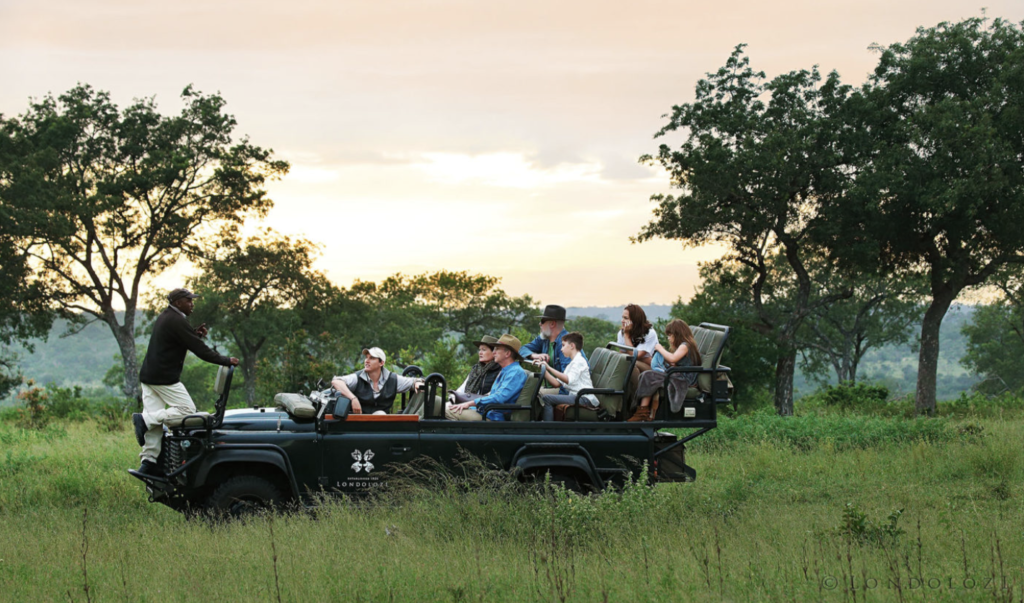
Londolozi’s Futuristic African Village: Pioneering New Systems for Living and a New Model for Ecotourism in South Africa
The success of The Londolozi’s Ecotourism Model rests on the creation of perpetual and long lasting vested economic and social interests for those who live within and around the reserve. This is the New Narrative.
While the central pillars of a responsible ecotourism model have always been the same, modern technology is providing the opportunity to enhance all aspects. On a walk, through the Londolozi staff village, guests experience what they are contributing to by staying with us. Sure the rooms are magnificent, but it is what happens behind the stage curtain that gives a place true authenticity.
The inner workings of Londolozi are aligned with pioneering new systems for living in relation to each other and the wilderness that supports us. From harnessing renewable energy to installing state of the are wastewater treatment facilities, we are continuously looking for innovative methods of reducing our footprint. The positive impacts of ecotourism in South Africa filter through hotels and lodges and into the surrounding areas. Just by staying at Londolozi, guests are contributing to NGO’s such as the Good Work Foundation and the Tracker Academy, which are revolutionising education in rural Africa, preserving ancient knowledge and providing careers paths for young people in the areas surrounding the Sabi Sands Game Reserve.
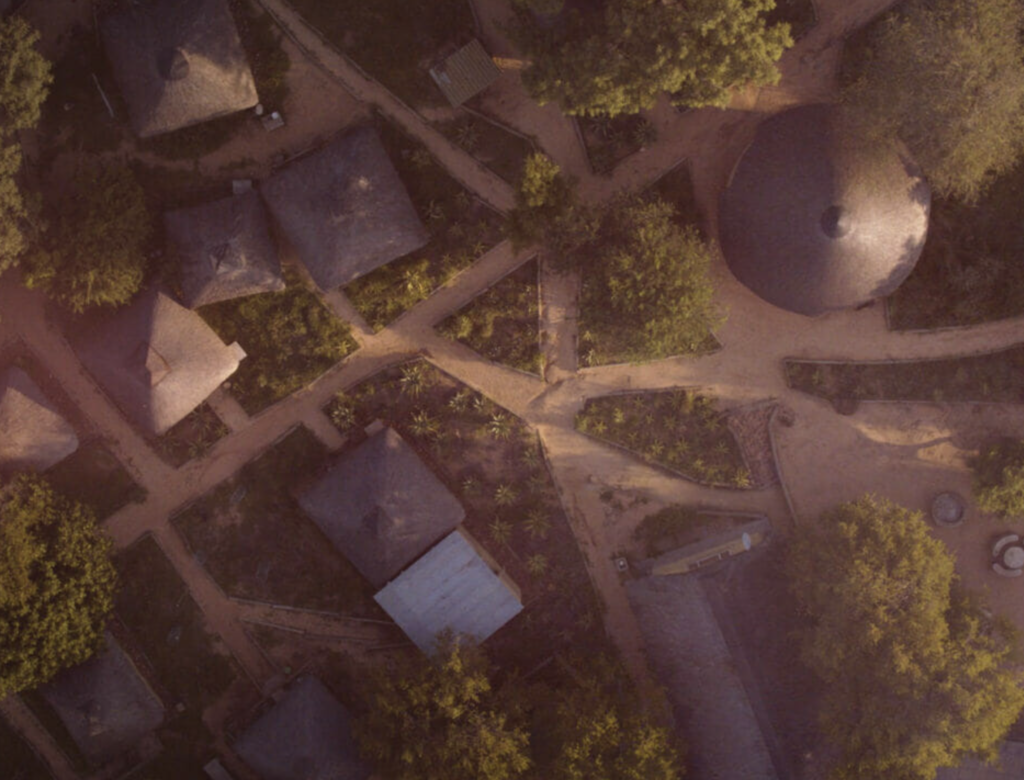
- Discover Londolozi’s Futuristic African Village Model
A Never-Ending Campfire Story
On listening to stories of Londolozi in the “old days”, I’ve often thought to myself how great it would have been to experience it back then. To be one of those visionaries pioneering the ecotourism industry. Every time I return to Londolozi I am reminded of how lucky I am to be a part of the Londolozi Family. Technology integrated with ancient wisdom. When the positive ripple effects of a working ecotourism model are exponential.
As the world has become more digitally connected, humans have become more detached from nature. But being a part of Londolozi community now has given me the privilege of not only reconnecting with nature but has opened up my mind to the possibilities that lie in a more earth-centric way of thinking. All the while being able to share this experience with guests from around the world.
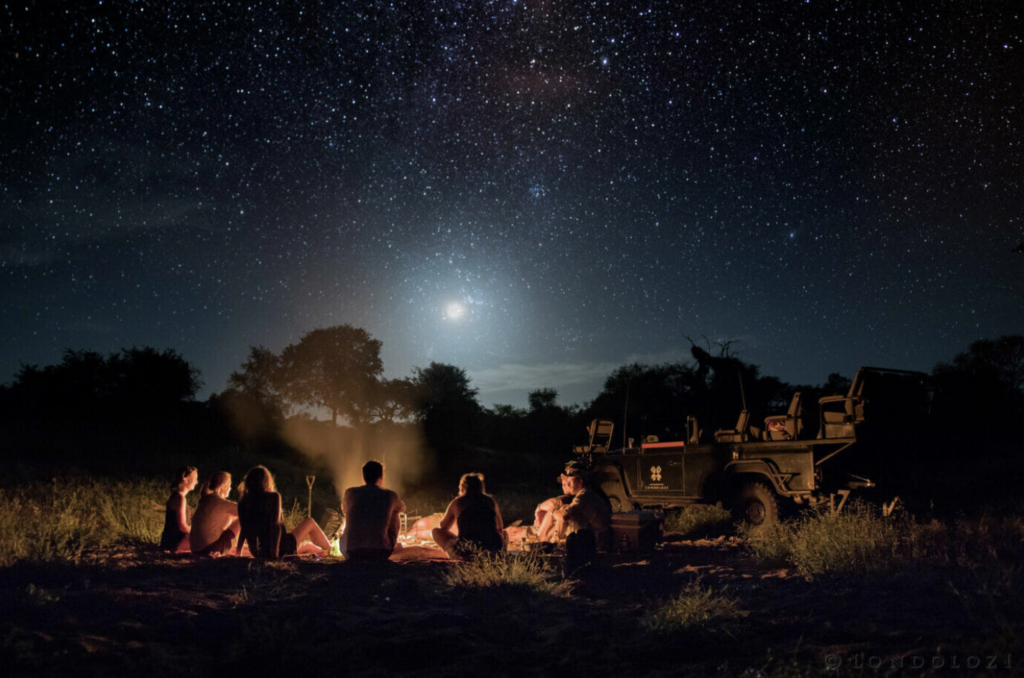
The essence of a safari at Londolozi has changed little over the years. The fun and excitement of watching the African theatre unfold is very much alive. The commitment to excellence remains ingrained. However, now more than ever, there lies an opportunity for all of us involved in ecotourism to utilize technological developments that will pave a sustainable path forward and preserve our ecosystems for the benefit of far more people than was ever before.
Concluding Remarks
All of this of course would not be possible without the most important people in ecotourism, the guests. The tourists that travel and explore. By choosing to travel consciously tourists have fuelled a growing safari industry that has throughout Africa contributed to uplifting communities and protecting wildlife. We have a huge amount of gratitude for the countless guests that have become part of the Londolozi story over the years.
Our guests over the decades may just be droplets in the tourism ocean but each and every one has added to a ripple effect that flows beyond Londolozi’s reserve, and I’d like to invite you to become apart of this never-ending campfire story. Travel with a purpose. Reunite with nature. Wherever in the world you might be, support organisations that empower people and protect ecosystems. And if you are able to, come pay us a visit, experience the Londolozi feeling, and see for yourself a working ecotourism model in progress.
Join our global tribe:
As a Londolozi Ripple Fund supporter you join a global tribe of people who hold the belief that the restoration of the planet can only come out of a profound shift in human consciousness.
We have established a Londolozi Ripple Fund Impact site where you can follow regular updates of projects and donations as they unfold.
For more information or if you would like to make a donation and start your own ripple effect, please reach out to us on ripple@londolozi.co.za


